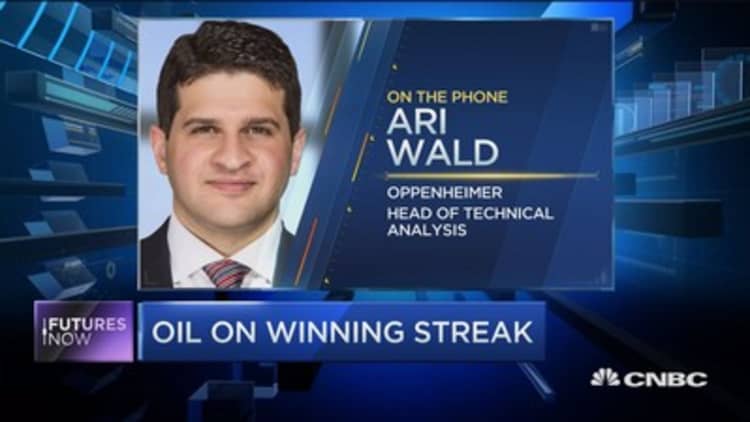
Some analysts are wondering if it's Groundhog Day in the oil market.
Prices have rallied nearly 20 percent since early August on talks of an OPEC move to support prices, mirroring gains earlier in the year when the cartel had raised the prospect of curbing supply. That rally sputtered and some market experts say it's unclear if a similar fate can be avoided.
After all, the 14-member group haven't agreed on very much since the summer of 2014 when the oil market started crashing. Prices have fallen as much as 70 percent since then.
"Prices are only marginally above where they were when the group met in Doha in April and couldn't agree to a deal," said Daniel Hynes, commodity strategist at ANZ, in a report on Thursday.
"It's clear OPEC saw the weakness in oil prices in July as unwarranted and this forced its hand. However, instead of having to cut output, verbally intervening has achieved the same impact," he added.
Reversing losses of about 15 percent in July, oil prices rose for a sixth straight day on Thursday with European Brent hitting $50 a barrel for the first time in six weeks. Brent ended the session 2.1 percent higher at $50.89 a barrel while U.S. crude settled 3.1 percent higher. Both grades have risen more than 20 percent from lows hit in early August.
Crude oil prices were flat on Friday in Asia with U.S. West Texas Intermediate at $48.36 a barrel while European Brent crude was at $50.89 a barrel around 11.30am HK/SIN time.
The jump came reflected renewed confidence on possible moves by the OPEC to freeze production as member states prepare to of the International Energy Forum in Algeria in late September.
The ball started rolling when Saudi Arabia's energy minister Khalid al-Falih said last Thursday that producers will be discussing the rebalancing of oil markets following a two-year rout that has seen crude prices plummet from more than $100 a barrel in 2014 to the upper $20s this past winter. Non-OPEC member Russia chimed in, with its energy minister Alexander Novak telling a Saudi-owned newspaper that was consulting with the Kingdom and other producers to achieve stability in the oil market.

Yet analysts have concerns that such a plan would succeed, especially considering Iran's reluctance to cooperate.
"The last OPEC discussion on output freeze broke down as Iran refused to participate; it remains a wildcard," wrote DBS analysts in a note on Tuesday.
In any case, with OPEC pumping at a record high of 33 million barrels a day, a freeze would also do little to alter the supply-demand equation, DBS added.
The market is also watching rising U.S. rig counts, which have risen by 80 since a low in early June to 396 in the week ending August 12. If the number pushes above 400, U.S. oil production will reverse its declining trend, said Hynes at ANZ.
While skepticism remains over whether there will be any output freeze deal, ANZ said to not totally dismiss the notion as the group is already pumping at a record high while Iran is close to its targeted production levels for the year, so there is room for output to fall.

